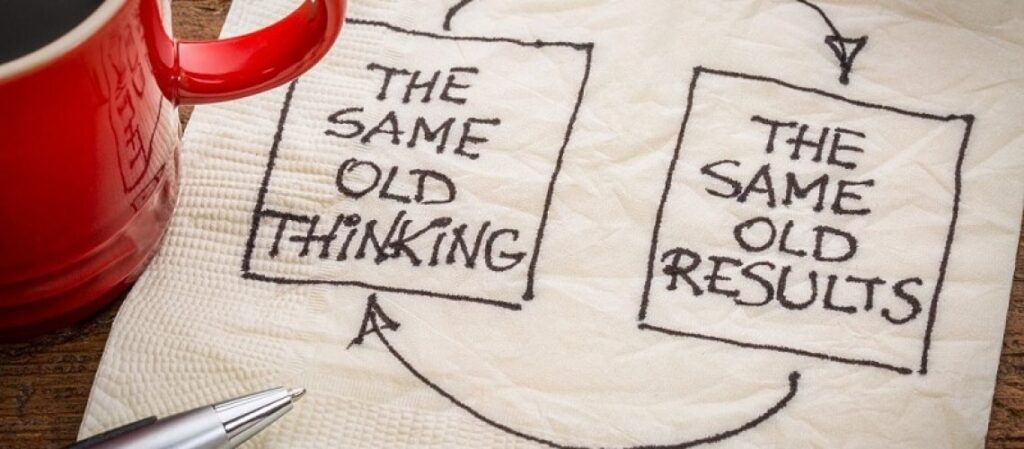7 KEY THINGS TO FOCUS ON
When we think about how to create an environment where better results are a natural outcome, what should we be thinking about?
Should we be thinking about process and procedures?
Should we be thinking about upgrading or better leveraging the tools we use?
Should we be thinking about monitoring and enforcement?
Should we be thinking about granular measurements of ROI?
Or should we be thinking about how to create an environment where people matter?
Things are changing fast. The workforce, climate, politics, priorities and so much more are clearly in transition. And as a result people are often feeling overwhelmed. These changes have created an environment of disruption. Disruption causes stress. Stress causes anxiety and fatigue, as well as many other accumulative symptoms. And these symptoms combine to make people react in ways that are not in their best interest, or in the best interest of those around them. Look around in any direction you wish, you will see this effect everywhere.
Now, let’s not get ahead of ourselves. In terms of organizations, many are coping quite well, at least on the surface. The same is true for individuals. However, what is also true, and this is the elephant in the room, is that everyone has a limit to how much they can manage gracefully. If you don’t choose to proactively address what you know must be smoldering just below the surface you are exposing yourself to risk that is difficult to predict.
So if you’re among those who are coping well, congratulations on your strength, endurance, preparedness or whatever quality you have been able to lean on.
On the other hand, if you are struggling, you are not alone, congratulations on still being in the game.
If you’d like your results to improve, here are 7 key ideas to focus on;
(And this applies equally to individuals and groups)
1 – Everyone has a role to play.
(Or they wouldn’t be there)
2 – Every role is important.
(We are all interdependent on each other)
3 – Every role comes with a perspective.
(And all perspectives are valid, at least for those who hold them)
4 – Suggestions need to be encouraged
(If you don’t let people speak, how can you know what they are thinking?)
5 – Not all suggestions can, or will be implemented
(Even good ideas do not always fit in the bigger picture)
6 – We don’t have to be right all the time
(Some of the most important learning in history has come from mistakes)
7 – We don’t have to agree with someone in order to listen
(Listening is not giving up power, it’s gaining an opportunity to influence)
To summarize these 7 ideals, we are talking about empowerment. Empowerment is not giving power to others so they are better prepared to challenge you. Rather, empowerment is about providing resources and support to others so they are better able to contribute to the tribe. In almost every case an empowered partner will contribute more than a silent or suppressed partner. And, truth be told, there may be an exceptional few that are either unable or unwilling to embrace their empowerment in a way that is helpful. In those rare cases there may come a time where empowering the group, perhaps as a last resort, could require the uncomfortable act of directly addressing a disruptive member of the group. That is one of the less pleasant responsibilities of leadership. If leadership was always happy and easy it wouldn’t be leadership.
I’d like to wrap up the idea of empowerment with an excerpt from Joe Kaeser, Supervisory Board Chairman Siemens Energy, taken from an article he wrote and published on LinkedIn on May 20, 2020 speaking to, among other things, leadership during the Covid-19 crisis.
He writes, in part;
“In all these crises, leadership and great teams built by it enabled Siemens to become stronger and better than before. Time and again I’ve seen this kind of leadership and alignment at Siemens over the past few months. At all levels of our organization, our employees have gone the extra mile to adjust to a new way of life, a new way of working. They have delivered a robust performance for the quarter. They have successfully completed the carve-out of our energy business and created Siemens Energy as originally planned. They continue to transform this company in an unprecedented way, securing the future for the next generation. They have done all this as a team, knowing that we all share a responsibility to support and protect our colleagues. This solidarity, this sense of community is the result of a strong leadership culture. Leadership is not reserved for managers. It is first and foremost a behavioral matter. It is about acting as if it was your own company. As if it was your own money to spend and your own reputation to lose. This is a very powerful aspiration and something that will enable us to overcome this crisis. It is about the people and about their leaders to give them confidence and show them the way forward.”
Link to the full article on LinkedIn:
https://www.linkedin.com/pulse/leadership-times-crisis-joe-kaeser/
If you enjoyed this blog please link to our social media pages to hit the like and follow buttons for more interesting and insightful looks into what it takes to build your results oriented communication culture. Your action helps a lot and is very much appreciated. Thank you.

